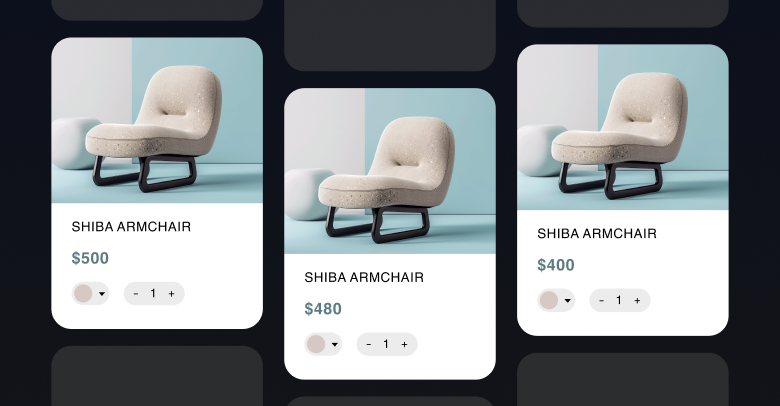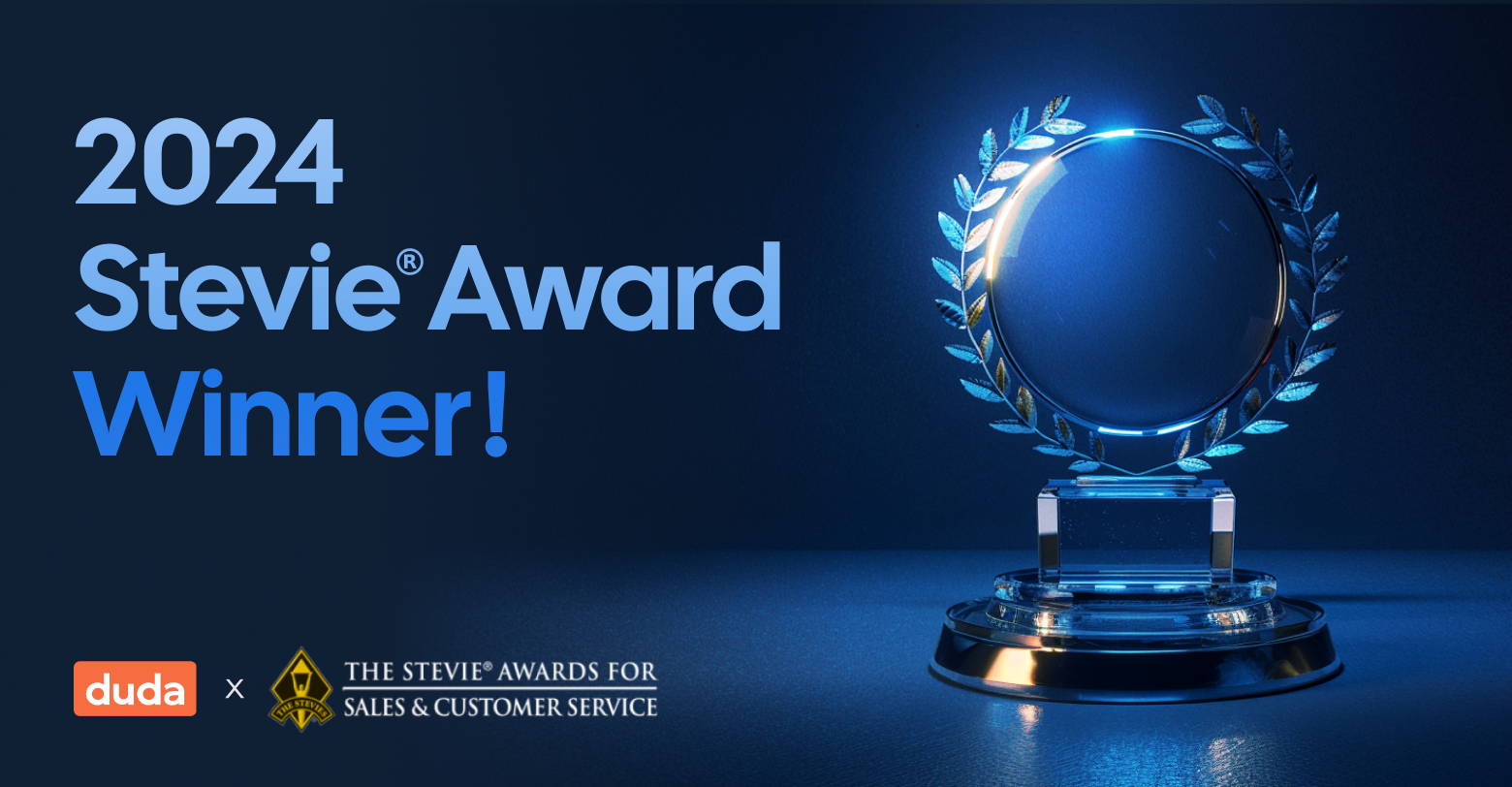We’re Using React – And We’ve Got a New Website Builder to Show for It!
Big things are happening here at Duda. In a few days, we’ll be launching a brand new version of our responsive website editor
, one that’s faster and sleeker than before.
Our new editor has all the same capabilities as the old one, along with plenty of new functionalities, a shiny new interface, and a world of possibilities.
The new editor is much more than just a facelift. It’s a complete redesign, from the bottom up, using new technology and featuring a new UI. Almost every element in the editor has been rebuilt in React, an exciting new technology that’s ideal for creating beautiful, consistent user interfaces.
We sat with Liad Yosef, Client Architect and Team Leader here at Duda, to hear more about why React was the technology of choice for Duda’s new editor.
First of all, can you tell us a bit about React?
React is an open-source JavaScript library for building user interfaces. It’s a technology that creates what we see on the internet. In React, everything is built from small components. First, we build the components, then we put them together to create the view that we want. It’s a bit like Lego. We first build the Lego pieces – these are the components. Once we have those, we combine them in any way that we like. Each component is a unique part that won’t be affected by other components. This means each component is stable and independent.
React was developed by an engineer at Facebook in 2011, and released in 2013. Today, it has a very big, very active community of developers who contribute to it.
React, developed at Facebook in 2011, is used today by dozens of leading websites, including Airbnb, Imgur, and Netflix.
Did you start out knowing you would build the new Duda editor in React?
No, not at all. In fact, when we started working with React, we weren’t planning to rebuild the editor at all. We were just looking into technologies for building a couple of new widgets – the Push Notification and Multi-language widget. After exploring the options, we decided to try React.
What made you choose React for those first few widgets?
React is an excellent technology for building independent components that can be integrated into an existing platform. Unlike other technologies, React doesn’t require a huge, platform-wide commitment. We could just build the components and integrate them into what we already had.
In other words, we were able to start small and work in iterations. Not every technology allows for this. Angular, for example, requires a much bigger commitment, and that’s not what we were looking for.
What made you decide to create an entirely new editor with React?
After designing those first two widgets, we realized that React was exactly what we needed to improve the entire Duda editor. The building process was much faster than we expected, and there were so many benefits. Once we got started, we realized it was the right technology for our editor.
While building these widgets, we decided that we needed to make a big change in how we write code. The decision to build a new editor enabled us to create new code standards. Not only would we improve the technology that we use, but we would also improve how we use the technology.
Can you tell us a bit about the benefits that you, as a developer, have with React?
First of all,
CONSISTENCY
. Everything we build in React is automatically consistent with everything else, because every widget is comprised of the same components. So if a new widget has text, the editor for that text will automatically be identical to the text editor in other widgets. The same applies for buttons, toggles, and more.
Steps for editing the button are now identical in every widget that has a button.
Another benefit is
SPEED
. It’s much easier for us to develop new widgets because all of them are composed of the same building blocks. When a new widget is composed of components that are already used in another widget, all we need to do is group those components as a new widget and we’re ready to go.
The editor loads much more quickly too, by the way. This saves time every time you open the editor, and every time you build a new website.
STABILITY
is another benefit. The widgets that we build in React are easy to test because they are composed of components that have already been tested. We can conduct unit testing for every part of every widget, thereby ensuring the widget is entirely stable before we release it.
React also gives us an incredible amount of
FLEXIBILITY
, because it’s very easy to make platform-wide changes quickly. A single change to a component is implemented everywhere in which that component appears. If we have ten widgets with textboxes, changing the textbox component once will implement the change in all ten widgets at once.
What are some of the benefits for users now that Duda is using React?
Users benefit from the same advantages that we do as developers. Increased consistency. Increased stability. Increased speed. Every time a new widget is implemented, it is consistent with all the other widgets. This means that users know what to expect, even when they are using a new widget. It’s also much faster for us to build new widgets, so when users have requests, we’re able to respond more quickly.
Angular is another technology that gets a lot of buzz these days. Why didn’t you choose it for the new editor?
Angular wasn’t the right solution for us. Angular provides you with the whole application framework – it contains everything you need for your website. But we didn’t need everything. We already have a platform, and what we wanted to do was update it gradually. React enabled us to do that.
The old Duda editor is built in JQuery. What’s the difference between JQuery and React?
With JQuery, we could change the UI specifically when something changed. Since we had to keep the UI consistent with itself, this resulted in a lot of
spaghetti code
; that is, code that was interconnected and linked to other actions. This was messy and hard to work with. With React, every component is self-contained. So if we change one component, we don’t have to worry about how it will affect other code, because it won’t.
In a nutshell, can you tell us what users can expect from the new editor?
First of all, the interface is better. Hands down. It’s sleek, gorgeous and works well.
But in addition to aesthetics, the new editor is also quicker, more logical, and more modern. Users will find it easier to find what they are looking for because everything is consistent. It’s in the same place and the same format every time.
The new editor also has greater flexibility and more customization options for each and every widget. Again, this is because once a component has been developed, it can be integrated easily into any widget that we choose.
We’ll be able to answer requests more quickly now too. Because if there is a new widget that people want us to develop, we can do that in much less time.
Of course, we all know that the ultimate test of every technology is how it works. Does it provide a better user experience? Does it make things smoother, more logical, easier? We’re certain the answer is a resounding yes, but you’re the ultimate test. Check out the new editor and let us know what you think in the comments below.










